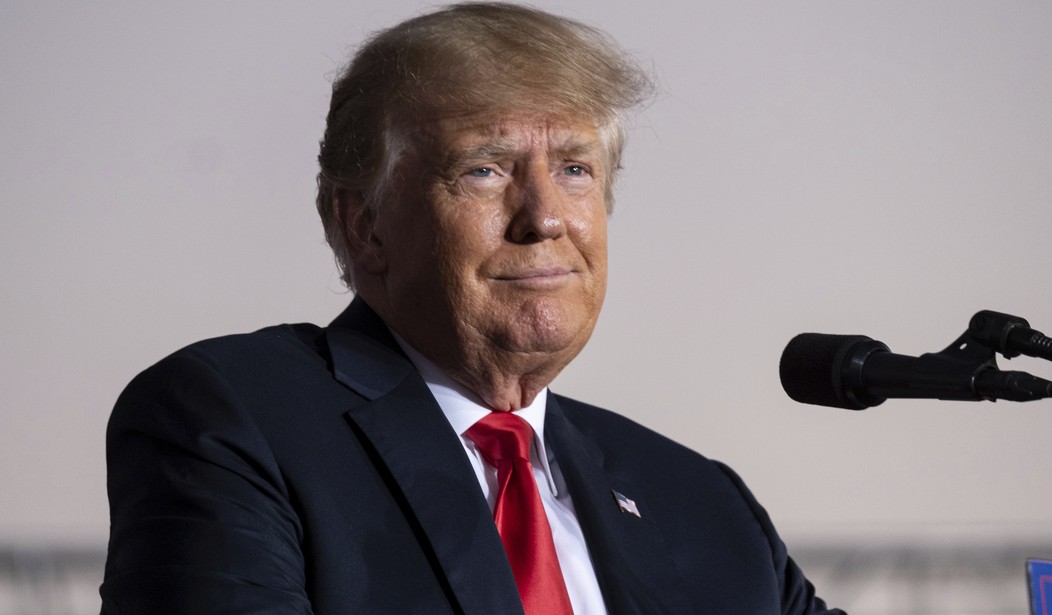President Donald Trump took a lot of heat from the mainstream, business and free-market Republicans for implementing tariffs against China and other countries. The common criticism was that it was a populist, anti-free market move. They pointed to it as evidence that he is a populist, not a conservative (I recently addressed the differences between populists and conservatives, showing the accusation to be a red herring). The MSM jumped on it even more, declaring — as if they are the authority — that Trump was going against Republicans.
Was he? Look at history. The Founding Fathers imposed tariffs. The first significant piece of legislation was a tariff, The Tariff Act of 1789, sponsored by James Madison and signed by George Washington. It was implemented because the U.S. was amassing debt and being flooded by imports. Article 1, Section 8 of the Constitution provides, "Congress shall have Power To lay and collect Taxes, Duties, Imposts and Excises."
Thomas Jefferson initially opposed tariffs, but admitted in a letter to Benjamin Austin in 1816 that he was reconsidering his position on tariffs due to changing circumstances. Before becoming president, Abraham Lincoln said in 1847, “Give us a protective tariff and we will have the greatest nation on earth.” High tariffs continued throughout much of U.S. history.
The conservative argument against tariffs primarily relies on defending free trade. However, when China can make products far cheaper due to horrendous working conditions for employees, that’s no longer an even playing field for free trade. Trump also implemented them on China in retaliation for its theft of U.S. intellectual property, which also gave it an unfair advantage.
Of course, Trump also imposed tariffs on goods coming from other countries, including the European Union, Canada and Mexico. Other countries aren’t as free-market as the U.S., and many subsidize their industries, so we’re still not competing on a fair playing field.
Recommended
Much of the criticism of tariffs stems from those countries responding by implementing tariffs of their own. A lot of the opposition to Trump’s tariffs in Congress came from Republicans no one would characterize as very conservative, like Paul Ryan, Orrin Hatch and John Thune.
Conservative business-friendly organizations oppose them. “For every steelworker job that might be saved because of a tariff, our country will lose even more American jobs in auto plants, construction, and so many other industries,” David McIntosh, the president of the conservative advocacy group Club for Growth, said in a statement. “Tariffs will also harm the pro-growth effects of the tax cuts, stall the economy, incite a trade war, and help hand the election to the Democrats.”
What it comes down to is Trump has a different approach for dealing with difficult countries than recent presidents — he is less accommodating. It hearkens back to the Ronald Reagan era of “peace through strength.” The reason Trump began the tariffs is because of weak trade deals negotiated by previous presidents after Reagan.
It’s difficult to get a fair assessment of the effectiveness of Trump’s tariffs since so many economists lean to the left and just want to bash Trump. About 70% of economists are Democrats, and supported Hillary Clinton over Trump for president in 2016. However, the late great economist Milton Friedman, one of the foremost free-market economists who is revered by conservatives, opposed them, believing free trade will lead to international peace.
Despite this, the conservative organization Grassfire reported that 96% of its team supported Trump’s Mexico tariffs. Even an MSM poll found that almost 80% of Republicans supported Trump’s China tariffs.
Many conservatives support moving to a national sales tax and eliminating the income tax. There was a lot of support for the “Fair Tax” as it was known several years ago. Tariffs are somewhat similar to that, but place the bulk of the tax on foreigners. The appeal of tariffs is they raise money without raising taxes for citizens.
Tellingly, most of the 2018 tariffs on China have been left in place by the Biden administration. The unions love them. So the left and its comrades in the MSM have become suddenly quiet about them, unwilling to criticize their own. The Biden administration admits it’s because China is still refusing to buy more American goods.
Joe Biden just said last month that he’s not ready to remove them, and the MSM ignored it instead of breathlessly writing articles digging up members of his own party slamming him and cherry-picked polls. “I’d like to be able to be in a position where I can say they’re meeting the commitments, or more of their commitments, and be able to lift some of it,” Biden said. “But we’re not there yet.”
The reality is tariffs are far more complicated than how the MSM portrays them. People on the right can genuinely differ over them. Several Trump-endorsed congressional candidates signed a letter along with House Minority Leader Kevin McCarthy urging the Biden administration to immediately expand tariff exclusions on billions of dollars of Chinese goods.
Politicians on the left are all over the board on tariffs. So if you disapprove of Trump’s tariffs, it’s dishonest to bash Trump over them while giving Biden a free pass. It’s difficult to determine how well the tariffs have worked, since there is so much bias against Trump. But maybe now that Biden is championing them, watch the news change to how successful they are.

























Join the conversation as a VIP Member